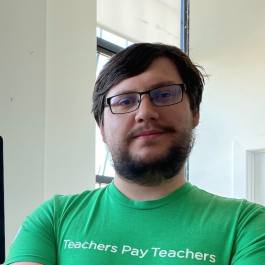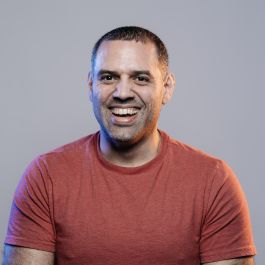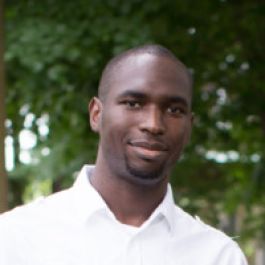Perhaps the most important thing a manager can say during a one-on-one is nothing at all.
Listening to employees’ concerns and career goals is the foundation to building trust and honest communication. In order to do that, managers need to create an environment where employees feel comfortable opening up.
For one-on-ones to be productive, managers and direct reports need to find value in them. When managers emphasize the importance of these meetings, even when they are used to discuss life outside of work, direct reports take notice.
Setting agendas, sharing Google Docs and blocking time off are just some of the ways managers across NYC are structuring their meetings. A common theme we heard was be flexible and let employees dictate what they need. One-on-ones are also an opportunity for managers to ask performance questions and talk career-pathing.
For Robert Burden, engineering manager at education marketplace Teachers Pay Teachers, one-on-ones are a balance of technical discussions and personal updates. He uses a spreadsheet to track discussed topics such as wins, personal development and action items.
Tell us about your approach to one-on-ones with engineers.
We do weekly one-on-ones. Structure-wise, I try to keep things flexible and light by starting off with any pressing issues and updates followed by going through our one-on-one tracker and ending with some informal conversation about family, hobbies, pets or anything else that did not already get covered. I aim for a balance between the technical and human side of one-on-ones, keeping in mind this is time for my engineers to share things that are important to them. It’s not an opportunity to assign tasks or scope upcoming work.
I keep a dedicated one-on-one tracker spreadsheet for each team member that acts as an agenda as well as a searchable history of topics we have discussed. The sections I use are wins, follows-ups, primary focus, roadblocks, feedback, personal development and action items. Throughout the week, any topics or updates that need more context can be added to the tracker. I think it is important to make one-on-ones a naturally flowing conversation, so I do not allocate a specific amount of time to spend on each section of the tracker.
What questions have you found to be particularly important to ask in your one-on-ones?
I think the most important question is the one I typically kick things off with: “How are you doing?” It's simple, direct and opens the field to take the conversation in whatever direction it needs to. Maybe we take a few minutes and talk about their week or jump directly into digging into a technical problem. Your team members have a very different perspective on work in progress than you have as a manager.
What is one important change you made to your approach to one-on-ones that has helped you get more from the meeting?
The most impactful change I have made to my one-on-one process recently is periodically switching standard meeting structure to include some special one-on-ones. At the beginning of 2020, I used a modified version of the fantastic year-in-review template from CEO Claire Lew of Know Your Team. This was a great opportunity to change up the conversation and reflect on the past years’ successes and challenges as well as set goals for the year ahead.
Letting employees have the driver’s seat in one-on-one meetings can help them feel more at ease. Ramon Gonzalez lets his direct reports pick the meeting location and shares the agenda document with them so they know what to expect. He asks how he can improve his role as a manager in order for them to better succeed at their jobs at fintech company IEX.
Tell us about your approach to one-on-ones with engineers.
I try to stick to a framework and structure. At the beginning of each month, I set up a time with each member of my team. I like to let them know that it's a normal monthly one-on-one, and I share a doc with them that has my framework and agenda, which is just questions that I feel help me understand and help them if they don't have any questions.
I also ask them to pick a location, if they want to meet at the office in a conference room, step out and grab coffee or meet after work. We always begin the meeting with me asking if they have anything they'd like to cover or any questions. We spend time on that and if there is nothing else we go to our shared doc. While we are meeting, I take notes on top of that shared doc and let them know to please review it later to make sure I captured things accurately. The types of questions are not usually technical, and we spend the majority of the time focusing on the person. That said, we usually end up getting into something technical just because of the roles we are in.
What questions have you found to be particularly important to ask in your one-on-ones?
I find the most helpful questions are the ones that make people think as if they are one level above their current position. For example, I might ask individual contributors what kinds of goals or concerns they have about the team. I also leave time to make sure we can cover manager improvement, which is to say, I ask about any ways they believe I can improve that would help them. I ask them to identify a moment when they think I could have helped them but missed it or didn't do it. This is very helpful to me as a manager to ask directly.
What is one important change you made to your approach to one-on-ones that has helped you get more from the meeting?
I think the most important thing is the actual framing of a one-on-one. Something I noticed coming into a managerial role is that people are generally nervous when their manager asks to meet with them. To try and defuse that I put as much information up front as possible to make people understand there are no surprises. The other aspect of the up-front framing was to make sure the meeting is considered as important. It should be the last meeting that is eligible to be canceled (from both parties). I like to make sure folks know that these meetings are critical in order for me to perform well in my role and them to be healthy members of the team.
Newton Ikhariale, senior engineering manager at Teachable, said he individualizes each one-on-one in order to build trust with his engineers. For structure, he spends 10 minutes on general topics, 10 minutes letting the engineer dictate the conversation and the remaining 10 minutes for recognition and feedback. However, he’s flexible with the time limit if the engineer has pressing concerns or questions.
Tell us about your approach to one-on-ones with engineers.
The one-on-ones follow a flexible 10-10-10, driven by the engineer. Ten minutes for general chat on topics relevant to the engineer, which is critical for building trust. The next 10 focuses on intentionally listening to topics on the engineer's mind and sharing guidance as necessary. The rest of the meeting is for recognition, feedback and growth opportunities.
There is a document for the agenda and shared notes. Some engineers use it regularly, while others ignore it. The important thing is for the manager to have topics available to discuss at each one-on-one.
The spectrum of topics depends on the engineer’s domain of expertise or seniority. I tailor guidance or topics to what the person needs. For example, senior engineers need more context on business and product decisions; entry-level engineers look for more technical guidance or how to work effectively within the team.
What questions have you found to be particularly important/useful to ask in your one-on-ones?
My questions start very open-ended, then go deeper. It encourages openness.
What is one important change you made to your approach to one-on-ones that has helped you get more from the meeting?
Over time as a manager, I have learned to make one-on-ones unique to each individual. The key is to build trust with the engineer during each meeting. It means different locations, topics and communication styles and genuinely caring about what is important beyond their work. Individualizing one-one-ones builds trust, which is necessary to make the meeting productive.
Questions managers say are useful to ask in one-on-ones:
- How are you doing this week?
- What is on your mind today?
- What do you enjoy about your work?
- What can the team do to improve?
- Any roadblocks or upcoming issues?
- What might go wrong if we tried X?
- What were the pain points that led to decision Y?
- Do you have any feedback for me?
- How can I support you?
John Whitfield describes his one-on-one structure at fintech company Summer in one word: lean. He focuses on present topics and collaborates with engineers on what they are struggling with. If there are action items for him after the meeting, he puts them in a shared Google Doc to hold himself accountable.
Tell us about your approach to one-on-ones with engineers.
As with all of our processes, I try to keep our one-on-one structure lean. I share a doc with each engineer where we can add topics between meetings as we think of them. At the start of the meeting, we take a few minutes to round out the list together. Before we get into the topics, I’ll ask how they are doing in general and if there is a specific human topic to check in on. Once we get into our list of topics, I take notes on the discussion and mark items that we should check in on next time.
Occasionally, there will be discussions on long-term career development, but most of the time, we will focus on the here and now. For this reason, I keep the agenda and structure open and flexible, without preconceived ideas of what we should be discussing.
What questions have you found to be particularly important to ask in your one-on-ones?
For me, one-on-ones are a collaboration. My primary goal is to help the engineer be successful, but I also need their knowledge and insight to make good decisions as a leader.
What is one important change you made to your approach to one-on-ones that has helped you get more from the meeting?
During the one-on-one, I often commit to taking some action on the engineer’s behalf. I’ve started using the “assign to” feature in our shared Google Doc to hold myself accountable. I make sure to resolve these actions quickly and mark them as such. I believe that this small formality strengthens trust and shows that we deliver for each other, not just them for me.
Jan Mlčoch lets his direct reports take charge of one-on-ones. He asks them to bring their own agenda and discussion topics. From there, they collaborate on work projects and develop professional career goals at Vimeo. He credits one-on-ones as a tool to keep employees on track with their goals.
Tell us about your approach to one-on-ones with engineers.
I ask each of my direct reports to bring their own agenda and to own the calendar invites so they can set the time and duration for our one-on-ones that are best for them. I try to focus on the human side of things, making sure one-on-ones are a collaborative process where we work together on career goals, such as by aligning projects and day-to-day work in service toward those goals. Ensuring that everyone has a path to grow their career is a top priority for me. Ideally everyone should know what the next step in their career is, roughly how long it will take and the concrete steps to get there.
One-on-ones are the most important tool to keep that on track.
What is one important change you made to your approach to one-on-ones that has helped you get more from the meeting?
Always have the camera on. I received some feedback about this early on in my management career. When I was an individual contributor, I was used to simply calling with no video and assuming we would be pair programming. But when I started doing one-on-ones, I realized it is very important to be completely present, especially in a time when we’re all working remotely. These days, I always make sure to prepare quickly and use video when we cannot meet in person.














